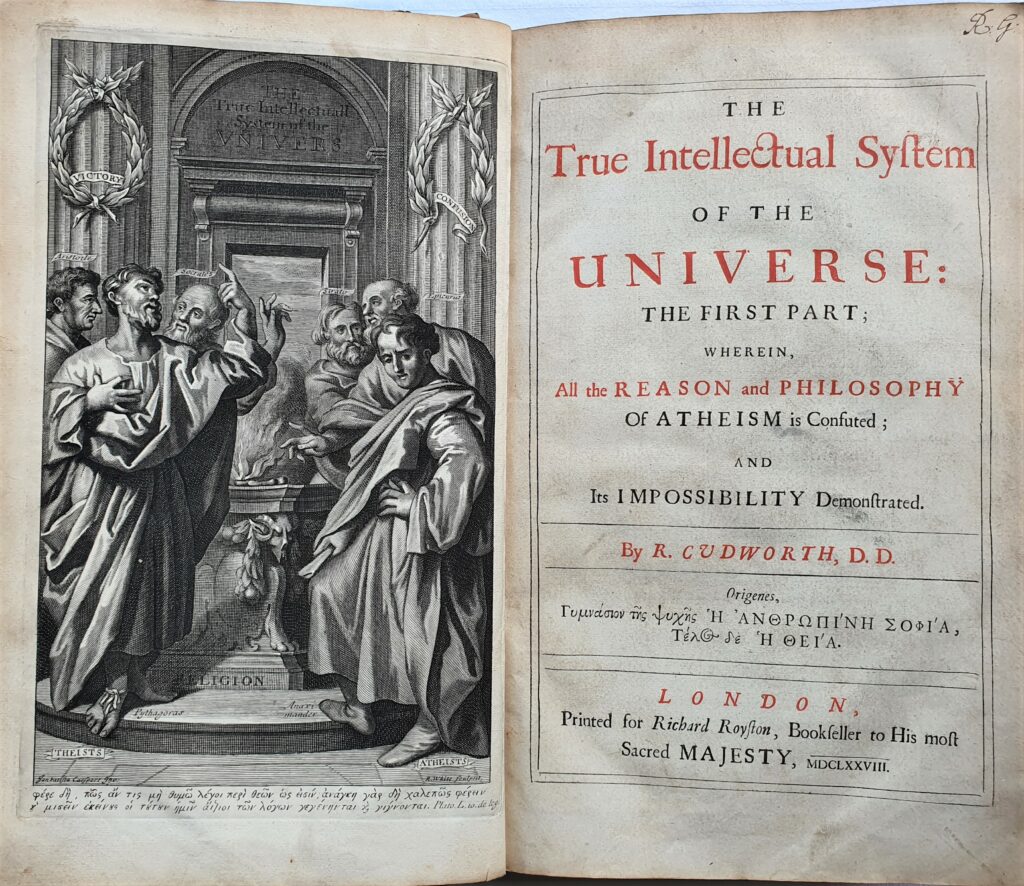First edition, written in answer to Hobbes’s Leviathan (1651) and Cudworth’s only work of philosophy to be published in his lifetime (1617-88). ‘Arguably it constitutes the most important statement of innate-idea epistemology by any British philosopher of the seventeenth century …. The full extent of Cudworth’s legacy in philosophy has yet to be mapped out. In England John Ray, John Locke (his critique of innate ideas notwithstanding), the third Earl of Shaftesbury, Sir Andrew (Le Chevalier) Ramsay, Richard Price and Thomas Reid all acknowledge their debt to Cudworth. In the European Enlightenment, Cudworth was the focal point of a dispute between Bayle and Le Clerc in 1703–1706. His concept of Plastic Nature was taken seriously in France as late as the nineteenth century. Thanks to J.L. Mosheim’s Latin translation (1733) Cudworth’s writings were mediated to the German Enlightenment’ (Sarah Hutton, Dictionary of Seventeenth-Century British Philosophers, Thoemmes Press, 2000).
‘The True Intellectual System is primarily a critique of what Cudworth took to be the two principal forms of atheism — materialism and hylozoism [a term coined by Cudworth for the doctrine that all matter is in some sense alive]. The materialist Cudworth had especially in mind is Thomas Hobbes. Cudworth attempts to show that Hobbes had revived the doctrines of Protagoras and is therefore subject to the criticisms which Plato had deployed against Protagoras the Theaetetus. On the side of hylozoism Strato is the official target. However, Cudworth’s Dutch friends had certainly reported to him the views which Spinoza was circulating in manuscript. Cudworth remarks in his Preface that he would have ignored hylozoism had he not been aware that a new version of it would shortly be published’ (John Passmore, Encyclopedia of Philosophy).

